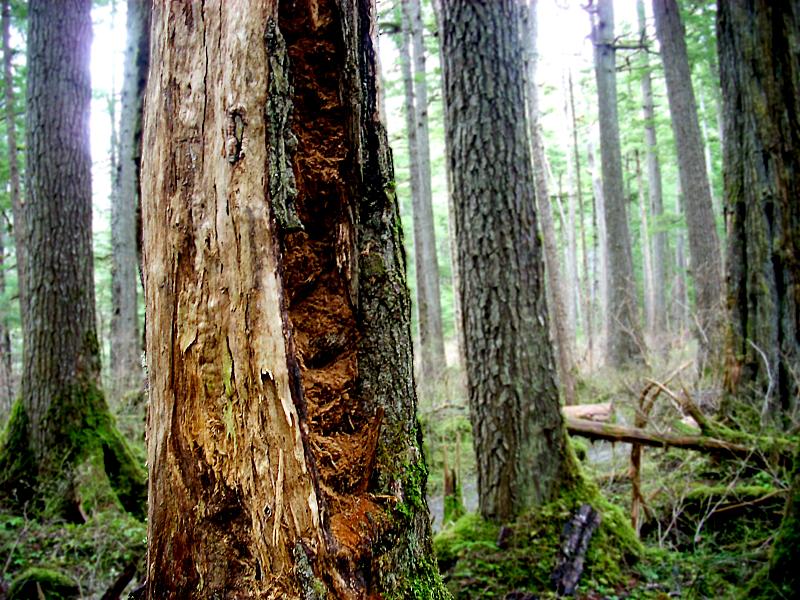The U.S. is in the midst of negotiations with Canada over an agreement on Canadian lumber imports. Many U.S. sawmill owners argue that the Canadian mills receive government subsidies on government-owned lands, making it difficult for the U.S. market to compete. The 2006 softwood lumber trade agreement, meant to level the playing field, expired last year and a one-year freeze on tariffs, a tax on imported goods and services, ends in October. The uncertainty of new tariffs is affecting Southeast timber.

The U.S. and Canadian governments have been at odds for decades on whether Canadian sawmills receive government subsidies, particularly “stumpage” fees, a tax on harvested trees. Mills in the states say that gives Canadian producers an unfair advantage in the U.S. market.
The deal that was struck in 2006 was renewed in 2012. It was designed to keep Canadian timber within a certain price range. If it fell below that range, tariffs would be enacted. The deal expired last October, kicking in a one-year standstill period, including a freeze on U.S. tariffs.
What this means for the timber industry in Southeast depends on the lens you’re looking through.
Alcan Forest Products is based in Ketchikan, but operates in Canada as well. Alcan Partner Brian Brown said the uncertainty of a new trade agreement is making Canadian sawmills unable to commit to prices on Alaska logs.
“We sell primarily in Canada, the red cedar log. Thirty to 40 percent of the red cedar we sell goes into Canada right now. The market is sort of a published-log-price market. We just did a shipment in there,” Brown said. “Right now, no one has been able to commit to a second one because of this duty. It’s hard to put a dollar figure on it because right now we’re in the same boat that the producers in Canada are. We don’t know what this agreement is going to consist of.”
Brown said Alcan does three to four shipments into Canada a year. He said each shipment is about 600,000 tons and is valued around $1 million U.S. dollars. If a deal is not struck in October, the U.S. is likely to put tariffs on Canadian timber.
“If you take a 15 or 20 percent cut on the price, that’s just speculation of what the price would be, it’s a significant amount of money,” Brown said.
Brown said he doesn’t buy into the argument that Canadian companies are subsidized, and said he would prefer a free market and no tariffs.
“For the sake of argument, I’ll say that’s true, that Canadian sawmills are being subsidized by their government. Who gets the benefit of that ultimately? It’s the U.S. consumer,” Brown said.
Others in Alaska disagree. Owen Graham of the Alaska Forest Association said he would like to see the 2006 deal renewed. He said it’s needed not just because Canadian producers’ low operating costs, but also because the Canadian dollar is weaker.
“I would say it affects our hemlock, which is about 30 percent of our production. Probably 70 percent of our lumber goes to the Lower 48 so to speak,” Graham said. “Of that, I would say the 30 percent of our hemlock that is just getting killed by the Canadians dumping low-cost lumber on the market, but it’s primarily because of the exchange rate.”
Graham said those numbers are based on Southeast’s largest mill, Viking Lumber. Alaska State Forester Chris Maisch said he agrees that a renewal would be best. Most timber across Alaska is predominantly exported to foreign markets, mostly Asia, Maisch said.
According to a Bloomberg report, Canada’s Trade Minister Chrysita Freeland and U.S. Trade Representative Michael Froman spoke last week at the G-20 summit in China, but a deal could not be reached. Freeland was quoted as saying “there is no guarantee we are going to get to a deal that works for both sides.”
The deadline is October 12.




